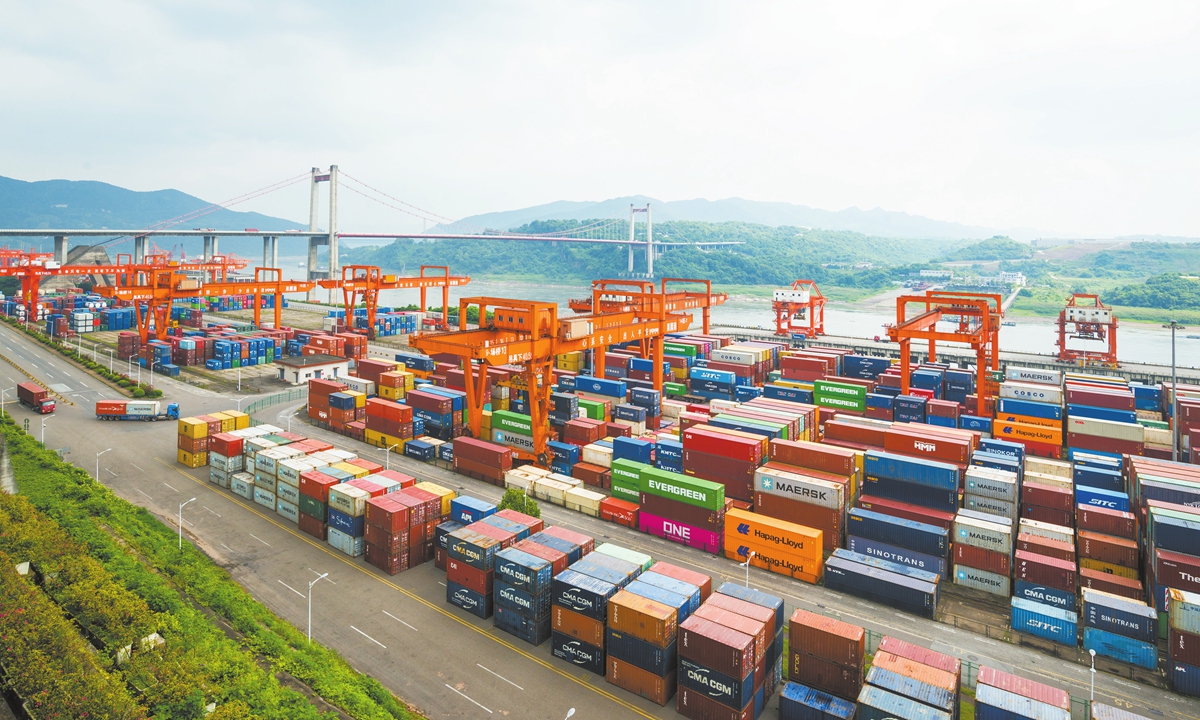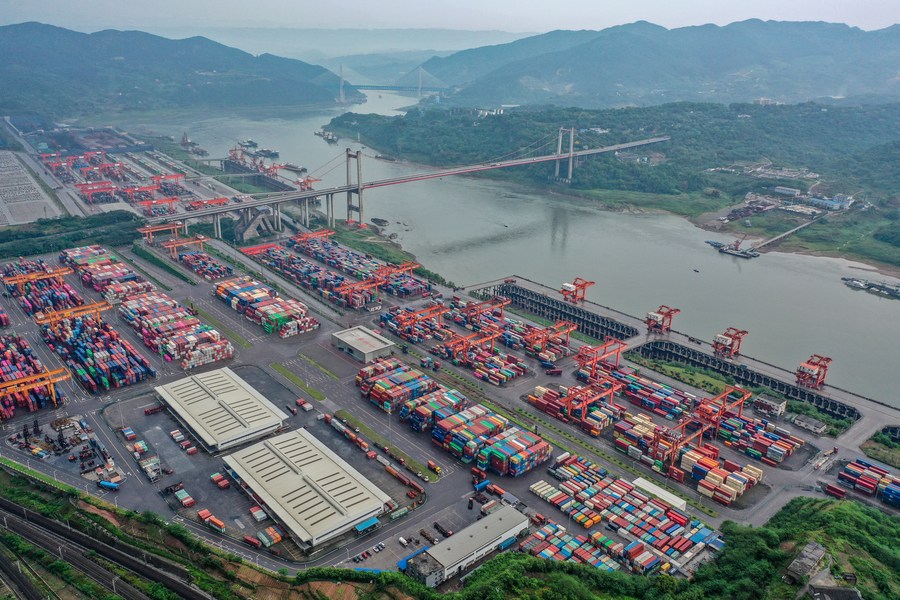Logistics innovation: Streamlined corridors enabling Chinese manufacturing to reach global markets

A view of the Guoyuan Port in Southwest China's Chongqing Municipality on May 19, 2024. (Global Times/Chen Tao)
On the evening of Oct. 20, a new freight route was launched as a train loaded with high-end automotive electronic parts and PVC materials arrived in southwest China's Chongqing Municipality at the Tuanjiecun Central Station from the ASEAN region.
After clearing customs, it connected smoothly with the China-Europe freight train, destined for Malaszewicze, Poland.
This route, part of the New International Land-Sea Trade Corridor, has become an essential link. Chongqing has established over 100 new logistics routes in the past two years, extending connections to Belt and Road partner countries across the globe.
The corridor is not only a fast logistics channel but also a thriving economic and trade artery. In the first three quarters of 2024, imports and exports in the region through this channel reached 513.79 billion yuan (about $71.97 billion), marking a 15 percent increase.

This aerial photo taken on April 20, 2023 shows a view of Guoyuan Port in Southwest China's Chongqing. (Photo/Xinhua)
Goods like chromium ore imported from South Africa and "Made in Chongqing" automobiles destined for export now converge at Chongqing's Guoyuan Port, while bananas from Laos imported via the cold chain train meet with lemons exported from Chongqing. This network is enabling a growing flow of goods to and from Belt and Road partner countries.
The corridor's "industry + logistics" model is further strengthening the Guangdong-Hong Kong-Macao Greater Bay Area's global manufacturing capabilities.
Recently, a custom order for resin lenses was sent from a European client to Carl Zeiss's Guangzhou factory. After production processes like polishing, coating, and dyeing, the lenses were sent by 4 p.m. to Hong Kong International Airport and then flown out at 10 p.m., arriving in Europe the next morning.
"With 24-hour order processing, we can deliver globally within 72 hours—often faster than even our European facilities," said Sun Wei, logistics director at Carl Zeiss Vision Technologies (Guangzhou) Ltd., the company's largest manufacturing center.
To facilitate this efficiency, customs authorities have implemented a cross-border pre-clearance system. Goods now undergo screening, assembly, and palletizing at the Dongguan-Hong Kong International Airport Logistics Park, reducing clearance time for shipments bound for Hong Kong. Since its opening in April 2023, this park has processed over 15.8 billion yuan in goods, served 767 companies, expanded to 832 types of goods, and handled 13,571.84 tonnes of freight.
Intern Han Yifan contributed to this story.
Photos
Related Stories
- China's logistics sector reports steady growth in first 9 months
- New International Land-Sea Trade Corridor facilitates flow of commodities between Chongqing and the world
- China's logistics sector sustains steady growth in August
- China's logistics sector holds steady in July despite bad weather
- China's logistics sector continues expansion in June
- Chinese vice premier urges efforts to improve logistics sector
- China's road logistics price index up in May
- China's logistics sector logs growth in April as demand continues to rally
- China's logistics sector registers growth in Q1
- China's logistics sector continues upward trend in Q1
Copyright © 2024 People's Daily Online. All Rights Reserved.









